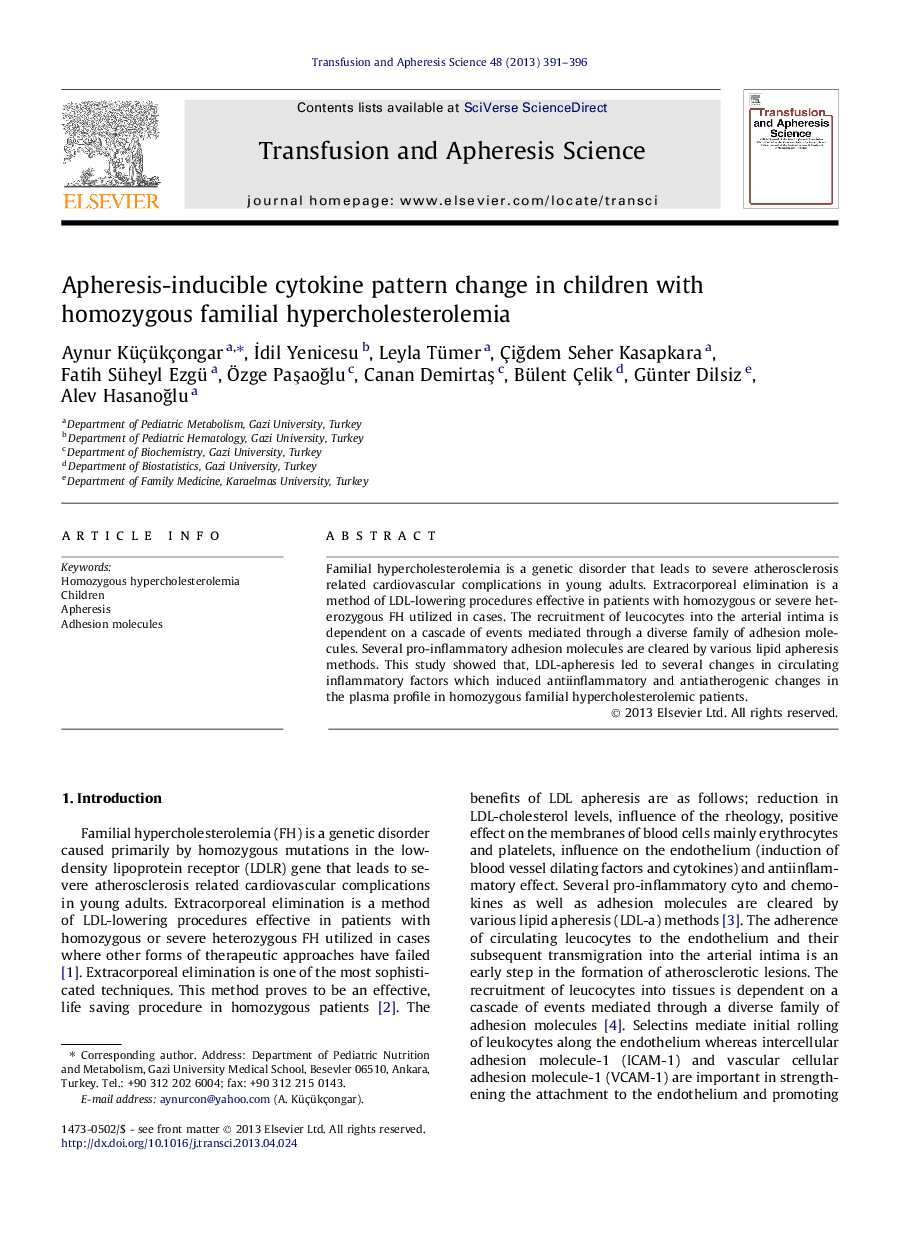| Article ID | Journal | Published Year | Pages | File Type |
|---|---|---|---|---|
| 3335202 | Transfusion and Apheresis Science | 2013 | 6 Pages |
Familial hypercholesterolemia is a genetic disorder that leads to severe atherosclerosis related cardiovascular complications in young adults. Extracorporeal elimination is a method of LDL-lowering procedures effective in patients with homozygous or severe heterozygous FH utilized in cases. The recruitment of leucocytes into the arterial intima is dependent on a cascade of events mediated through a diverse family of adhesion molecules. Several pro-inflammatory adhesion molecules are cleared by various lipid apheresis methods. This study showed that, LDL-apheresis led to several changes in circulating inflammatory factors which induced antiinflammatory and antiatherogenic changes in the plasma profile in homozygous familial hypercholesterolemic patients.
